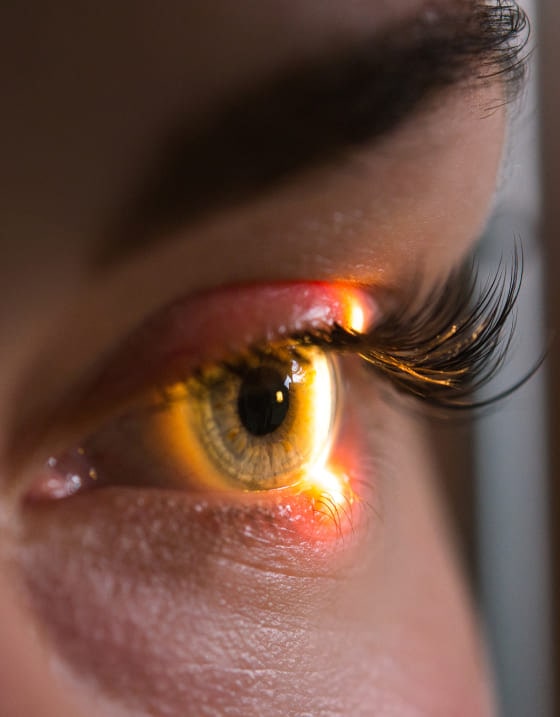Neuro Ophthalmology
-Clarity Through Connection: Discover Neuro Ophthalmology.-
Neuro Ophthalmology at
Nethra Foundations
The optic nerve, which transmits visual impulses to the brain, is likely to be damaged due to infection, trauma or other eye disorders affecting the eye and the brain. The Neuro-ophthalmology service evaluates patients with symptoms of double vision due to stroke, compressive lesions of the brain or Myasthenia gravis, visual loss due to neurological diseases such as optic neuritis, field defects, pupillary abnormalities, etc. The treatment of common types of Neuro-ophthalmology diseases depends upon the patient’s diagnosis. It also involves botulinum toxin injections that are used to prevent the muscle spasm for disorders like hemifacial spasm and for medical therapies. Surgical treatments are also performed like eye muscle surgery. The straight eye alignment is restored with the help of eye muscle surgery. For correcting the vision disorders, laser surgery is performed.

Typical conditions treated
- Visual loss due to optic neuritis, traumatic optic neuropathy, Ischaemic Optic Neuropathy
- Visual field defects due to neurological disorders like stroke, intracranial tumors, hemorrhage in the brain, injuries
- Pupillary abnormalities
- Double vision due to cranial nerve palsiess
- Papilledema due to raised intracranial pressure
- Ocular myasthenia
Question & Answer
Optic Neuritis
It is a condition which presents as a sudden onset loss or decrease in vision due to inflammation of the optic nerve. It can be due to an infection, or an autoimmune response. Optic neuritis is often associated with Multiple Sclerosis(MS).
Papilledema
Papilledema is characterized by the swelling of the optic nerve head (the part of the optic nerve which can directly be seen by your eye doctor during a retinal evaluation) due to increased pressure from inside the brain. It may be due to tumors, infections like meningitis, encephalitis, etc. /
Toxic or Nutritional Optic Neuropathy
The optic nerve may be damaged due to toxic substances found in tobacco & alcohol. In fact, the optic nerve damage is often due to lack of nutrients and deficiency of vitamin B-complex and folic acid as well. These diseases also present as decreased vision.
Squint or Strabismus
A misalignment of the eye, especially when sudden in onset, and associated with double vision is often due to paralysis of one or more of the small muscles of the eye, and is called paralytic strabismus. The eye shows limitations of ocular movement as well.
When should you visit your Neuro-Ophthalmologist?
Your eye doctor will usually suggest you visit an expert in Neuro-Ophthalmology after a comprehensive eye examination, in case you need special care. Often, the symptoms that prompt such a referral include those associated with optic nerve disease or diseases of the visual pathway (the nervous system component that connects the eyes to the brain). Other reasons could be the diseases affecting the pupils of the eye, and certain kinds of squint (especially paralytic).